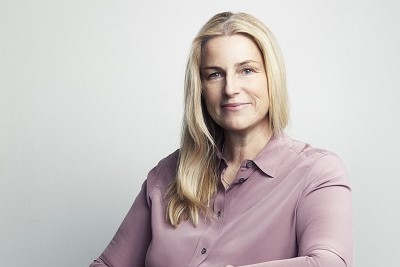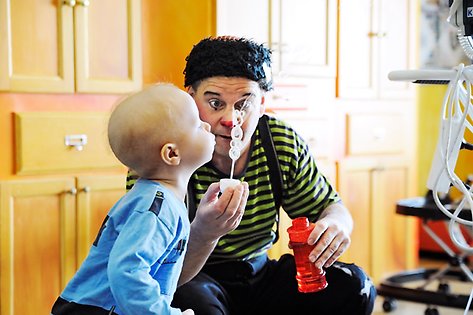Childhood Cancer is not Adult Cancer - Interview with Swedish Childhood Cancer Foundation's Head of Research, Dr Kerstin Sollerbrant
The Swedish Childhood Cancer Foundation is a partner of Uppsala Health Summit 2018. In this interview, the organization´s Head of Research, Dr Kerstin Sollerbrant tells us about the key care issues affecting children with cancer and their families.

Photo by: Karl Nordlund
Your role in Uppsala Health Summit Programme Committee is to make sure that a child perspective is represented in the analysis and proposed solutions. Why do we need to consider child perspectives?
Children with cancer face a very different outlook compared to adults. Yet, most therapies and health technology are developed for adults and often have significant negative consequences on children. Some of the therapies that has led to better survival can cause health problems that occur years after treatment has ended. Also, there is a strong need to raise awareness of what it means for a child and his or her family to get a cancer diagnosis, not just physically, but also emotionally and financially", says Dr Kerstin Sollerbrant.
But isn’t the treatment of childhood cancer regarded as one of modern medicine's great success stories?
Well yes, if you look at the statistics it is easy to see tremendous advancements that have taken place since the 1970’s. Today, more than 80% of children with cancer in high-income countries survive 5 years or more compared to only around 20 % back then, so it is a success story in many ways", says Dr Sollerbrant.
But survival rates have somewhat stagnated and the 80 % is calculated on an average. Some cancers, like the Hodgkin´s Lymphoma has almost 100 % survival rate whereas no child survives a certain type of brain tumor, the Diffuse Intrinsic Pontine Glioma, or DIPG. Also, the survival rates look very different in middle and low-income countries", she continues.
What are the big policy issues surrounding childhood cancer?
Equal access to care. Almost no cancer drugs are developed specifically for children, and the drugs developed for adults are often either not tested in children at all. We need to address the stagnating survival rates and invest in research to find cures for cancer types that lack effective treatments, and ensure that children in poor countries benefit", says Dr Kerstin Sollerbrant.
"Because of a loophole in the EU regulations, drug companies can opt out of running clinical trials of new cancer drugs in children, even where there is good evidence that the drugs would work"

Photo by Charlotte Gawell
For many years there has also been a strong unwillingness to carry out clinical trials in children for ethical reasons, but that is somewhat changing with a growing realization that doing nothing is not an option. We are beginning to see a shift in mindset here. If there is a small chance that a medicine developed for an adult can work in a child then it is more likely today that it will be developed also for children", says Kerstin Sollerbrant.
How does your organization work to support progress in this area?
The Swedish Child Cancer Fund has partnered up with seven pharmaceutical companies to look into feasible solutions. One possibility is to ask these companies to open up their archives and let other researchers make use of results and data that the companies are not intending to use. I am optimistic that there will be ways we can change this", says Sollerbrant.
At Uppsala Health Summit a range of topics relating to cancer care will be addressed, including biomarker development, precision medicine and care, biobank development, drug repositioning and how to prepare health care systems for cancer survivors.
Are any of these workshop topics especially relevant for childhood cancers in terms of opportunities for research and policy change?
In terms of biobanks, it’s important to discuss ways to make more effective use of the rare tissue samples that are available, and share data rather than allowing several researchers to do the same analysis.
Concerning survivorship, we need to learn from experience and educate the primary care system about issues that survivors may face as they grow older", says Kerstin Sollerbrant.
Finally, what are your expectations on Uppsala Health Summit?
I think it will be a good opportunity to find solutions to problems that limit cancer care today. It a chance to discuss important questions like how we can use data more efficiently for the benefit of the patients. In order to increase survival rates and come closer to our vision of eradicating childhood cancer, we really need to gather our strengths", says Dr. Sollerbrant.
Thank you.
